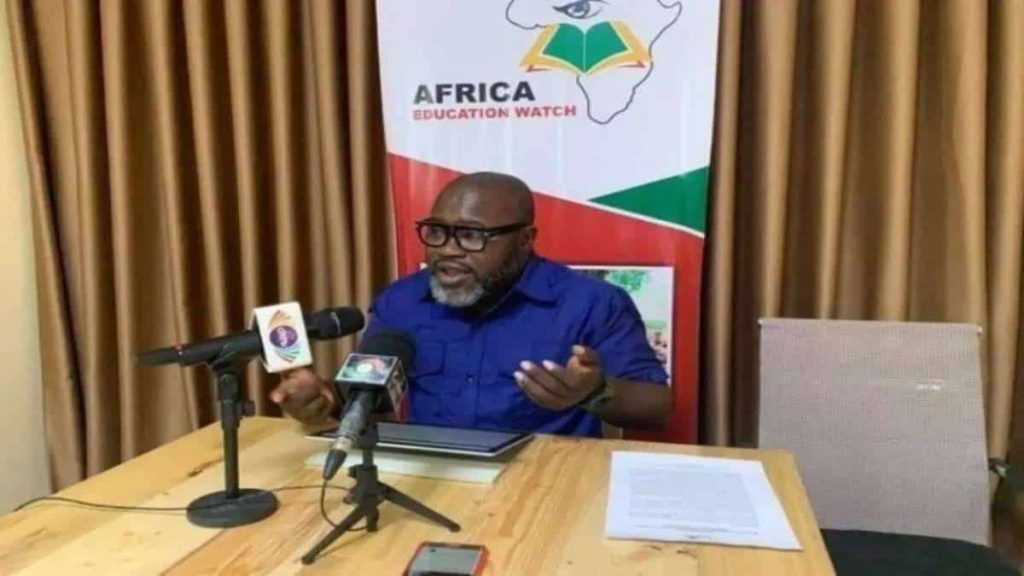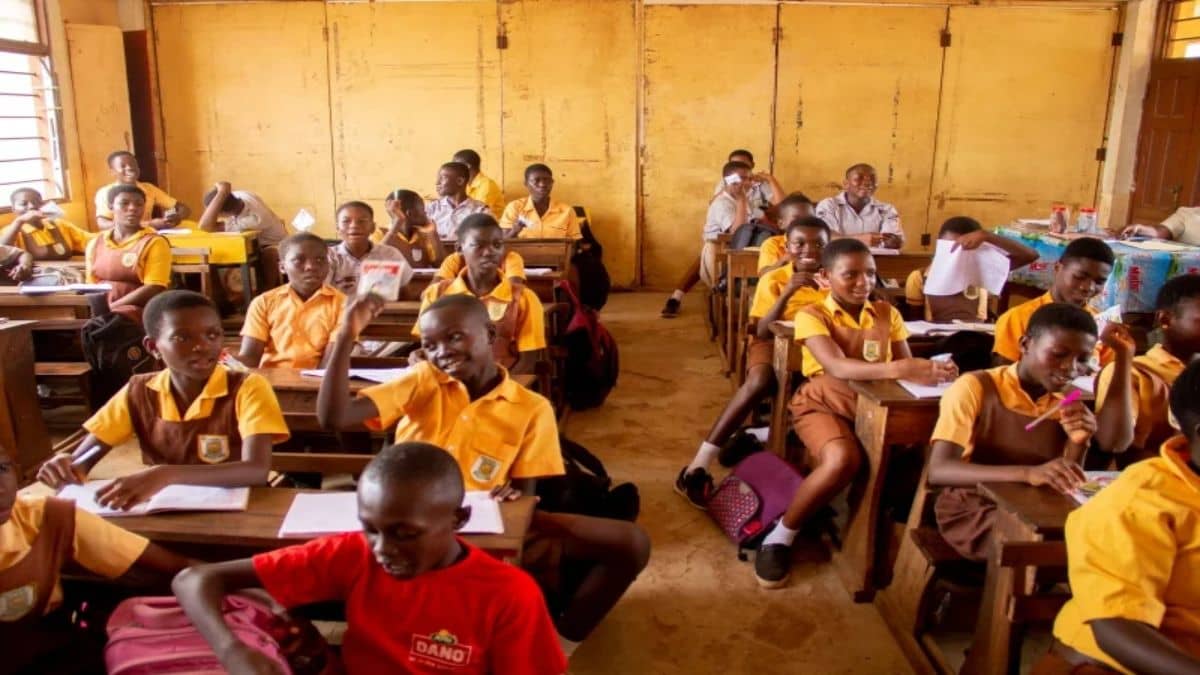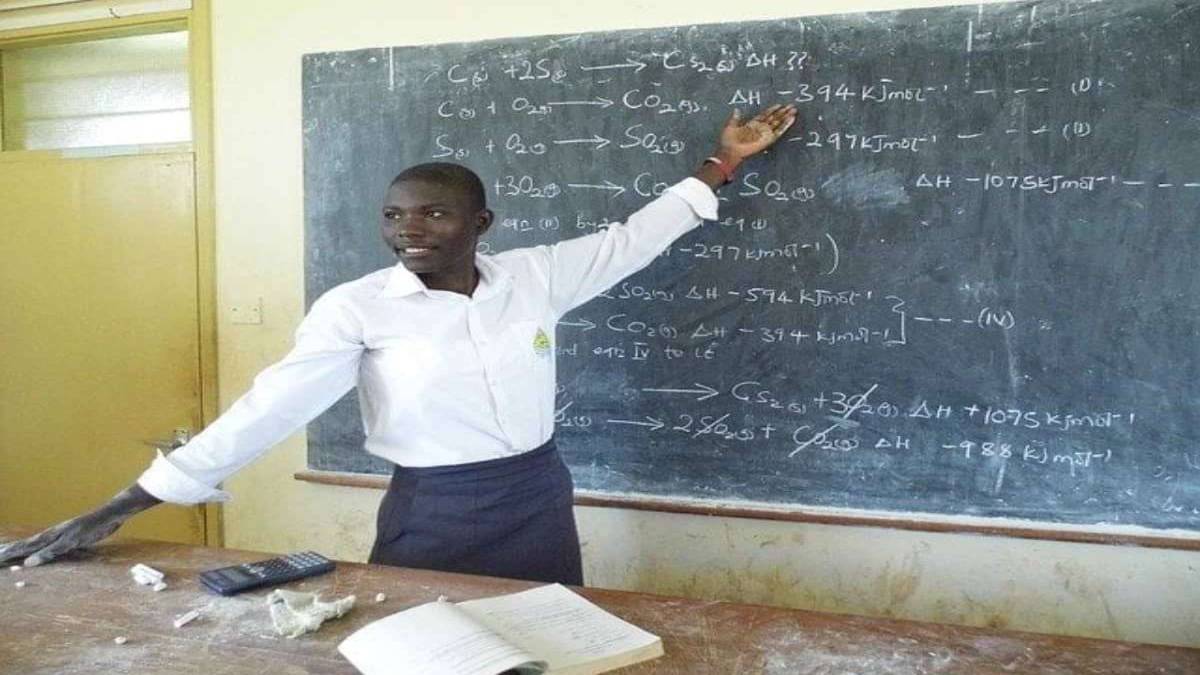EduWatch launches an Education Financing Tracker (2017 to 2024)

Education think tank – Africa Education Watch (EduWatch), with support from ActionAid Ghana and OXFAM in Ghana, on Thursday, August 29, 2024, launched an Education Financing Tracker at EduWatch’s Education Financing Conference.
The tracker assesses education budgeting and expenditure performance from 2017 to 2024, highlights key trends, gaps, challenges, implications for achieving SDGs, and recommendations for improved resourcing of education in Ghana.
In EduWatch’s education financing report sighted by Pretertiary.com, the think tank said the country’s education share of national expenditure has been significantly responsive to the minimum international education financing norms.
The Africa Education Watch, however, said there have been relative post-coronavirus (COVID-19) declines observed between 2020 and 2022.
“While the decline could be synonymous with the economic downturn, the national budget and expenditure trends showed no evidence of contraction, giving strong indications that there are still opportunities for increasing public spending on education to the global upper benchmark of 6 per cent of GDP, as Ghana continues to recover from the economic crisis
Equitable spending has remained an issue throughout the period under review, with basic education receiving less than 50 per cent of the total education budget as recommended by Eduwatch
While on average, 70 per cent of the education budget went into compensation, ensuring equitable expenditure on the remaining 30 per cent proved challenging, as secondary and tertiary dominated at the expense of basic, which has more than thrice the number of secondary and tertiary beneficiaries combined
The impact of increasing the education budget and expenditure can only be felt holistically when equitably spent to achieve balanced growth.
Budget execution continued to be high in a cumulative sense, exceeding the general budget amounts and the non-discretionary budget, i.e., compensation
However, discretionary expenditure (Goods and Services) remained below budget, due to erratic releases and disbursement, confirming the traditional challenge of discretionary budget credibility,” It said in the report.
Divine Kpe, Senior Programme Officer of Africa Education Watch (EduWatch), noted that GDP allocation between 2014 and 2024 is an average of 4% while the percentage of total annual expenditure is an average 7%.
He pointed out that while the 4% allocation meets the lower threshold, it remains inadequate for addressing the sector’s needs, urging the government to aim for the higher end of the benchmark to ensure sufficient funding.
Mr Kpe explained that although budget allocations for initiatives like the Free Senior High School (FSHS) program and capitation grants may seem adequate on paper, actual disbursements often fall short.
He noted that the Free Senior High School(Free SHS) program’s budget credibility has decreased from 120% in its initial year to just 61% recently.
“The feeding grant for special schools has also faced delays, and it is crucial to highlight these issues to ensure that attention is directed toward resolving them,” he added.
The report also criticised the government’s funding approach for Technical, Vocational, Education, and Training (TVET), which receives only about 8% of total education expenditure.
Mr Kpe called for a distinct financing model for TVET to address its capital-intensive nature and improve practical training and enrollment.
“To effectively support Technical, Vocational, Education, and Training (TVET), we cannot apply the same financing model used for the FSHS program,” he said.
There is a pressing need for a dedicated financing model for TVET to tackle its unique challenges and enhance the quality of technical education in Ghana,” EduWatch’s Senior Programme Officer Divine Kpe said.



